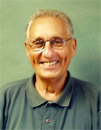
What does it mean to say that you “know” something is true?
According to traditional philosophical thinking, you can be said to know that some proposition P is true if and only if:
- P is true.
- You believe that P is true.
- You are justified in believing that P is true.
These three conditions jointly form the concept of justified true belief (JTB).
As an example, let’s examine my claim that I know Paris is the capital of France. Unless an edict to the contrary has come down in the last few minutes, Paris is the capital of France, I believe that Paris is the capital of France, and I’m justified in believing that based on available evidence. So according to the concept of justified true belief, I know that Paris is the capital of France.
Gettier Problems
Here’s a thought experiment: Let’s say I wake up in the morning, look at the clock (let’s make it an old-fashioned analog clock), and it shows the time as 7:30. And let’s say that the time is in fact 7:30, but that, unknown to me, the clock has stopped. Do I “know” that the time is 7:30? My belief that the time is 7:30 is correct, but is it knowledge — or is it more of a lucky guess?
Another thought experiment: Given the following scenario, do I “know” that my wife is in the house? I come home from work and see my wife in the kitchen. As it happens though, what I see in the kitchen is actually a perfectly rendered hologram. My wife is in the house though, but she’s upstairs where I can’t see her. Again, the three JTB conditions are true, but my justification for belief has nothing to do with the truth of the matter.
These types of thought experiments are called Gettier problems, named for Edmund Gettier, who in 1963 published a paper called “Is Justified True Belief Knowledge?”
If this kind of thing is of interest to you, Wikipedia has articles on Edmund Gettier and Gettier problems and the Internet Encyclopedia of Philosophy has a more in-depth treatment.
